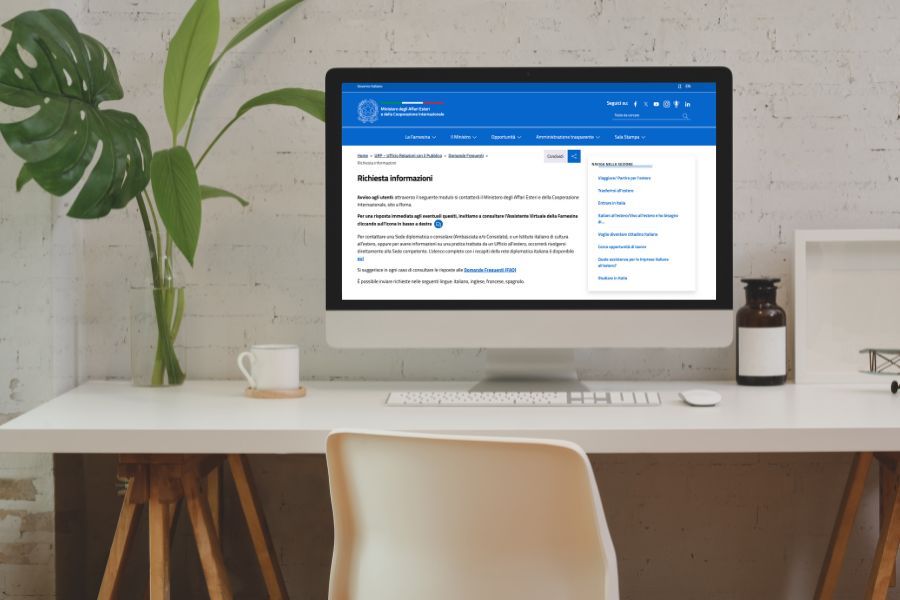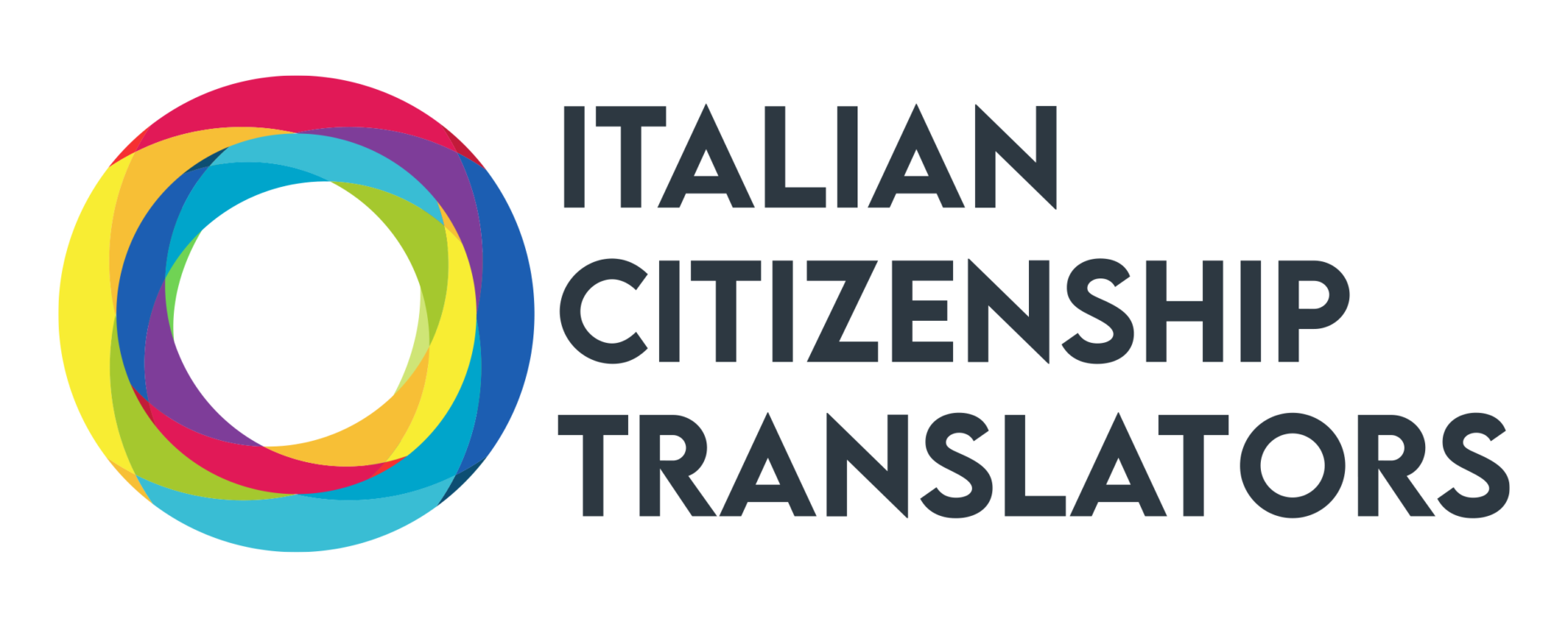
Applying for Citizenship at the Consulate vs. in Italy
If you have an ancestor who was born in Italy, you might qualify for Italian citizenship by descent, particularly if the ancestor never naturalized. With no generational limit (so long as the ancestor was alive after 1861, when Italy became a country) and relatively flexible citizenship laws, this is an inviting option for many people. The two main ways of applying for citizenship are via an Italian consulate in your country of residence or directly in Italy at a municipality. How do these processes differ, and how might your choice affect which documents and translations you need? In this article, we set out to answer these questions.
The process for applying at a consulate
Applying at a consulate is an option if you are unable to travel to Italy or would simply prefer to remain in your country of residence. No matter where your consulate is, you must first create an account and make an appointment on Prenot@mi. Depending on your consulate, it could be the case that no appointments are available, so you would need to check back frequently as new ones are added. You can also enter a waitlist in the case appointments are cancelled.
Due to these long wait times, it is advisable to make your appointment first while simultaneously working on collecting your documents. You will need vital records—birth, marriage, divorce (if applicable), and death certificates—going all the way back to your ancestor to prove an unbroken line. This includes your ancestor’s birth certificate from Italy. You will also need records related to naturalization. This could be the actual naturalization certificate (which needs to be dated after the next-in-line child was born). Or, if the ancestor never naturalized, you will need to show proof of non-naturalization. This will be in the form of a Certificate of Non-Existence of Records, which can be requested from the United States Citizenship and Immigration Services (USCIS). You will also need a Letter of Negative Search from the National Archives and Records Administration (NARA).
Furthermore, all documents that were not issued in Italy will also need to be legalized with Apostilles, and all non-Italian language documents will need to be professionally translated. There is finally a consular application fee, of around €300.
The process for applying in Italy
Generally, the process for applying for Italian citizenship is faster in Italy due to shorter wait times and an overall faster processing time of the application. This can be an attractive option for those who would like to experience life in Italy or were perhaps already planning to move there after acquiring citizenship.
There is no visa required for such a situation; you can enter as a tourist on your passport. One thing to keep in mind is if your passport wasn’t stamped in Italy (as in the case of arriving first in another EU country), you will need to fill out a dichiarazione di presenza upon arrival in Italy. This can be done at the Questura of the municipality where you will be residing. You will also need to get a codice fiscale soon after arriving or you can request it from your local Italian consulate before leaving your home country. This alphanumeric code is similar to a Social Security Number and is needed for many aspects of life in Italy.
You will also need a valid place of residence that covers at least a year-long stay. This means that hotels, Airbnbs, and other similar places are generally not acceptable. You will need to be able to show proof of a rental contract, ownership of the property, or a letter of hospitality. Then you will need to register as a resident at the address, which can be done at the local Anagrafe.
You can submit all your documentation for citizenship (everything mentioned in the above section, minus the payment) to your local municipality. Usually, you do not need an appointment, though it is advisable to choose a smaller town, as the offices in the bigger cities like Milan and Florence can be more complicated and longer to work through.
Finally, after your documentation has been submitted, you will need to apply for a permesso di soggiorno in attesa di cittadinanza. This allows you to remain in Italy past the usual 90-day limit for non-EU citizens while you await the processing of your application.
How do the documents differ?
In general, the documentation for the two processes is the same. As mentioned above, the most important aspect is to be able to demonstrate an unbroken chain of Italian heritage down from the original ancestor to yourself, by means of vital records and naturalization records (or proof of lack thereof).
Consulates, however, can sometimes require more documentation. You will also need to be able to provide proof that you live in the consular jurisdiction, e.g., in the form of a bank statement or driver’s license. There will also be four consular forms to fill out as well.
How do the translations differ?
Regardless of where you apply, all documents issued in a language other than Italian will need to be translated. They should all be professionally translated as well. The main difference concerns certification. If applying at a consulate (namely, a consulate in the U.S.), the people there can usually certify the translations themselves, meaning the professional translator doesn’t have to. Always check the specific regulations of your local consulate, however. If you do need to provide the consulate with certified translations, the translator can have these done before a notary.
For applications done in Italy, the translations will need to be sworn. In order to do this, the translator will need to appear before an Italian court and swear that the translation is accurate. It is best in this case to utilize a translator who is properly registered as well. The cost for sworn translations could range between €200 and €500.
Conclusion
The actual documentation for both processes of applying for Italian citizenship does not differ significantly, but there are some important things to note regarding certifying translations for use. Whichever path you choose will depend on your own circumstances and what works best for your application. Regardless, we are here to help, so feel free to contact us at info@italiancitizenshiptranslators.com.
